When we think about marine debris, we often picture the turtles, fish, and marine mammals that are impacted by plastics, fishing gear, and other marine debris. But what about wildlife that spends its time above water? World Migratory Bird Day (WMBD) is coming up this Saturday, May 11, and we are working with Environment for the Americas to raise awareness on the importance of migratory bird species, and the ways we can protect birds from the threat of plastic pollution and marine debris.
Marine debris is a widespread issue touching every corner of our ocean. For those species that live in, on, and above the sea, our trash can pose a big threat, and the threat may be the most common for birds. For many bird species, plastic can be confused for a tasty snack. It has been reported that from 1962-2012, nearly 60% of sea bird species had ingested plastic, and many even feed it to their young. Many organisms use plastic as real estate, encrusting the outside of boats, plastic bottles, and even microplastics. This can further attract birds, as they graze on the surface of the sea or shorelines. Once ingested, plastics can block birds’ throats and stomachs, create a false sense of being full, and even puncture their organs, eventually leading to illness, or even death. In fact, over the lifetime of a sea bird the chances of mortality increase 20% after ingesting even a single piece of plastic.
Birds can also become tangled in our trash. Fishing line, nets, and hooks that are lost or abandoned in our ocean and Great Lakes can trap birds in their grasp, as well as other plastic trash on shorelines and in the water. Diving birds are especially in danger from derelict fishing gear as they work to catch the fish that hang around masses of nets at sea. Some birds even use marine debris and trash as building materials for their nests, which can endanger the chicks that call them home.
The Marine Debris Program funds projects around the United States that help benefit the habitats that birds depend on, and prevent plastics from becoming marine debris. In the Northwestern Hawaiian Islands at the Papahānaumokuākea Marine National Monument, a clean environment is critical to all 14 million seabirds who live in the largest seabird rookery in the world. Here, smaller debris that litters the beach, such as plastic bottle caps, lighters, and toothbrushes, can impact these birds, some of which often mistake plastic items for food. Through a major multi-agency undertaking, hundreds of tons of marine debris have been removed from the Monument since 1996, including large amounts of nets, buoys, and plastics. This removal mission has been supported by the Marine Debris Program since 2006, with the most recent mission taking place in 2018.
In Maine, the Marine Debris Program is also working with the National Audubon Society to remove and study debris on eight islands important for many species of breeding seabirds, including several species listed as endangered, threatened, and of special concern. The islands accumulate debris throughout the year, but especially during seasonal storms and high tides when derelict lobster traps and other debris wash ashore. With the help of lobster fishermen, National Audubon Society will remove debris from these islands, as well as raise awareness in nearby communities.
Marine debris starts with us, and we all play a role in the solution. There are many ways you can help make a difference and reduce the impacts of plastics to migratory bird species. One way to get started is by practicing the 4Rs: Refuse, Reduce, Reuse, and Recycle. Refuse unnecessary single-use items, like plastic straws or cutlery when possible; Reduce the amount of waste you produce by choosing products with less packaging; Reuse items when you can and choose reusable items over disposable ones; and Recycle as much as possible — bottles, cell phones, ink cartridges, and many other items can be recycled.
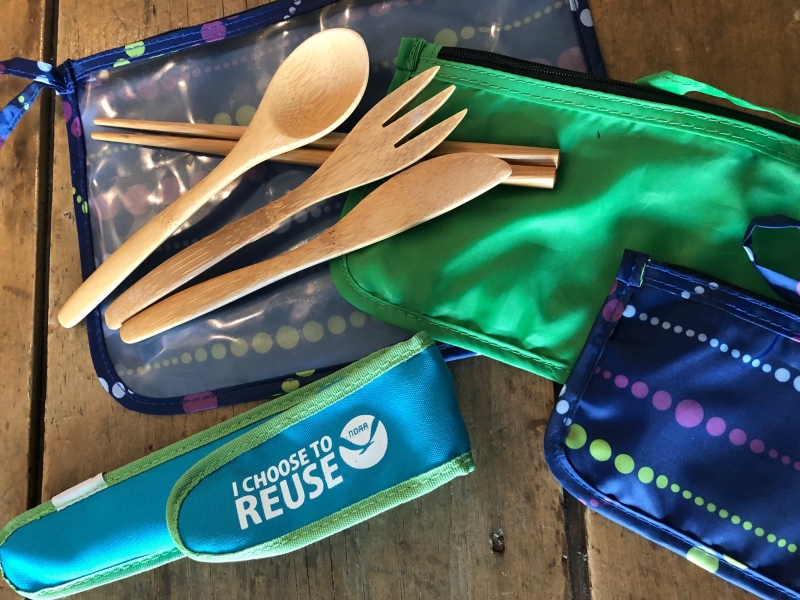
You can also spread the word to others in your community! No one person can solve this problem alone. Tell your family, friends, community, and more about this important issue and what they can do to help. Plastic has some important uses, but changing your habits so you’re not using unnecessary plastic is important, and by encouraging others to follow suit, these items may soon fall out of style.
Lastly, you can be a responsible steward of our ocean, waterways, and Great Lakes by disposing of things like trash and fishing line properly, no matter where you are. Whether you’re out at sea on a boat, on the shoreline for a beach day, or at home hundreds of miles from the shore, our trash travels and can harm the birds and other wildlife that share our planet.

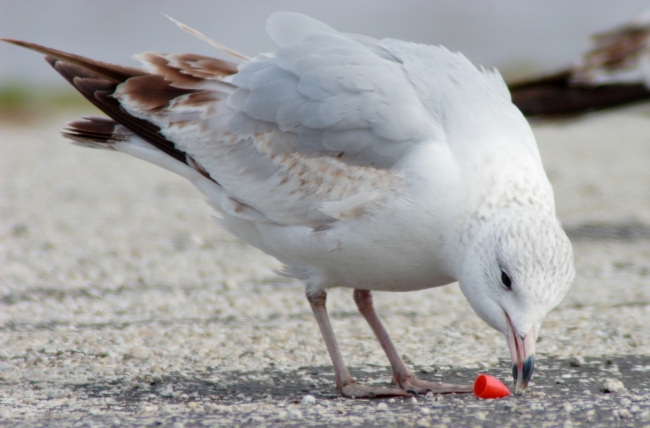
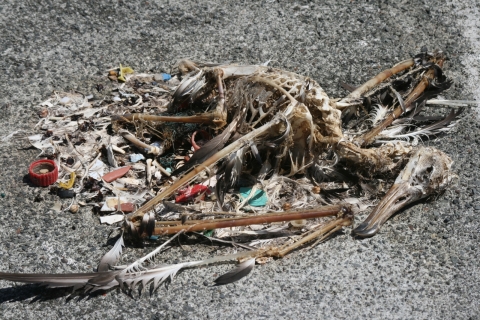
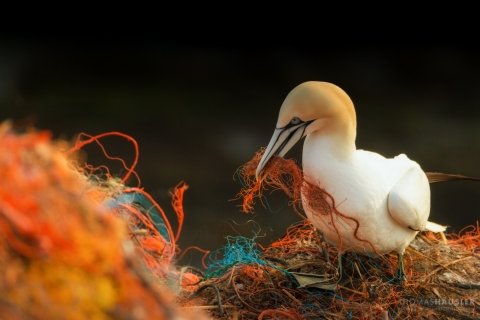
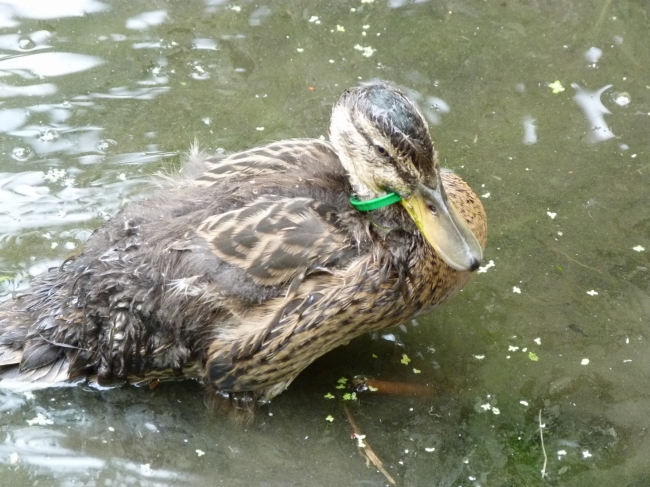
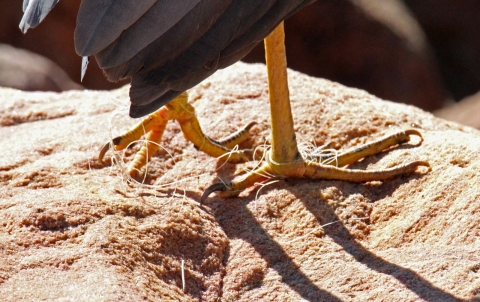
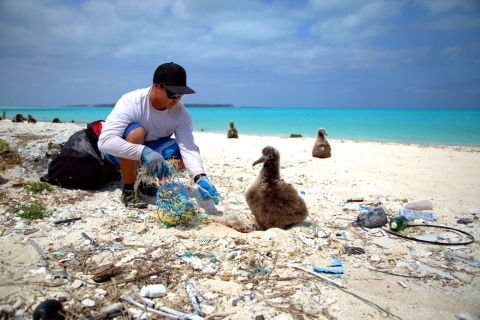
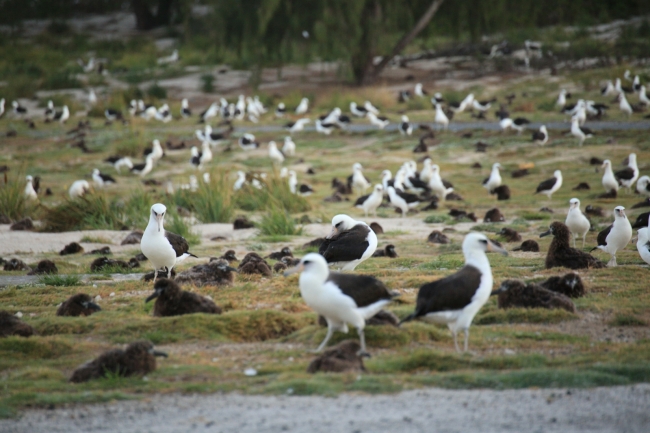
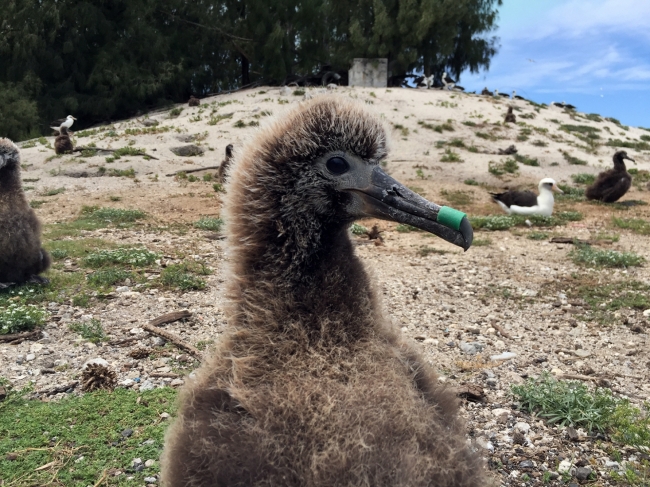
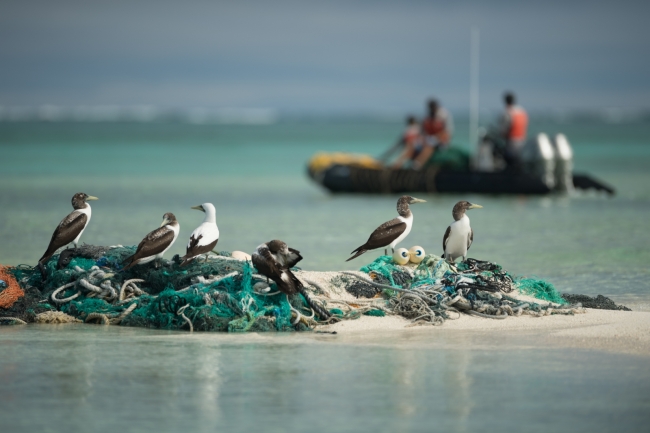
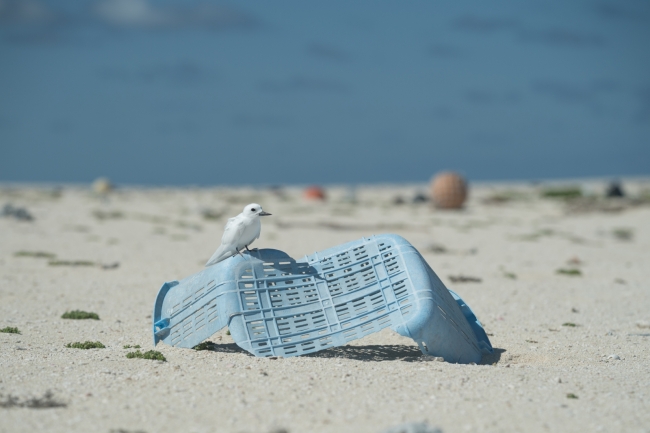
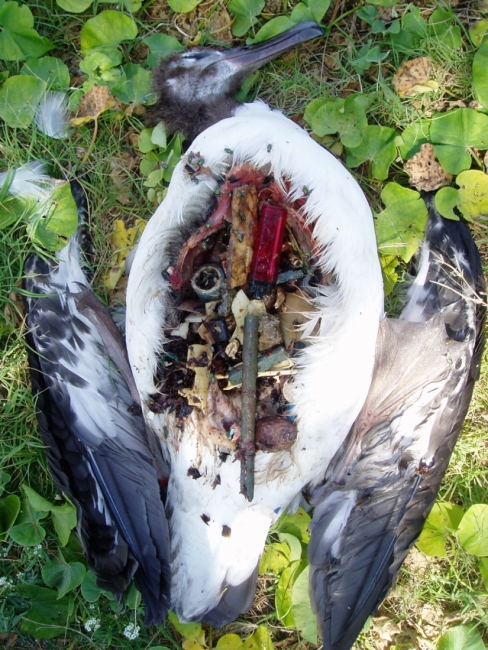
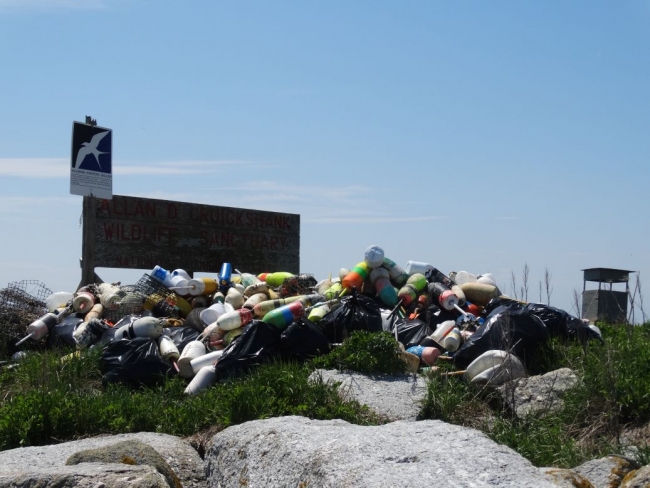
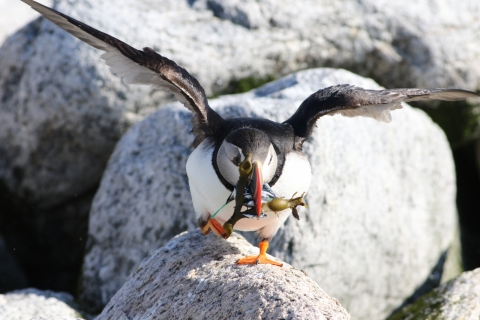
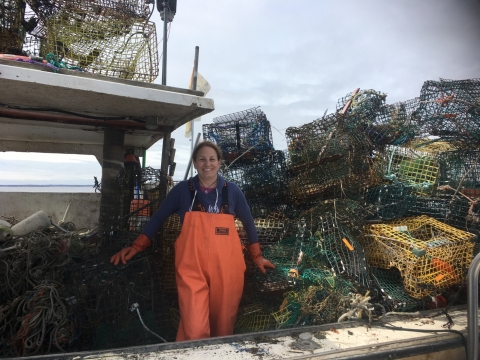
Hello, I'm about to write a petition to the EU in order to change how the bottle cups / rings are designed. I would like to force it by the law that the ring breaks once you open the bottle. My question on you is. Can I use your pictures of birds trapped in those bottle rings?
Regards
Rafal